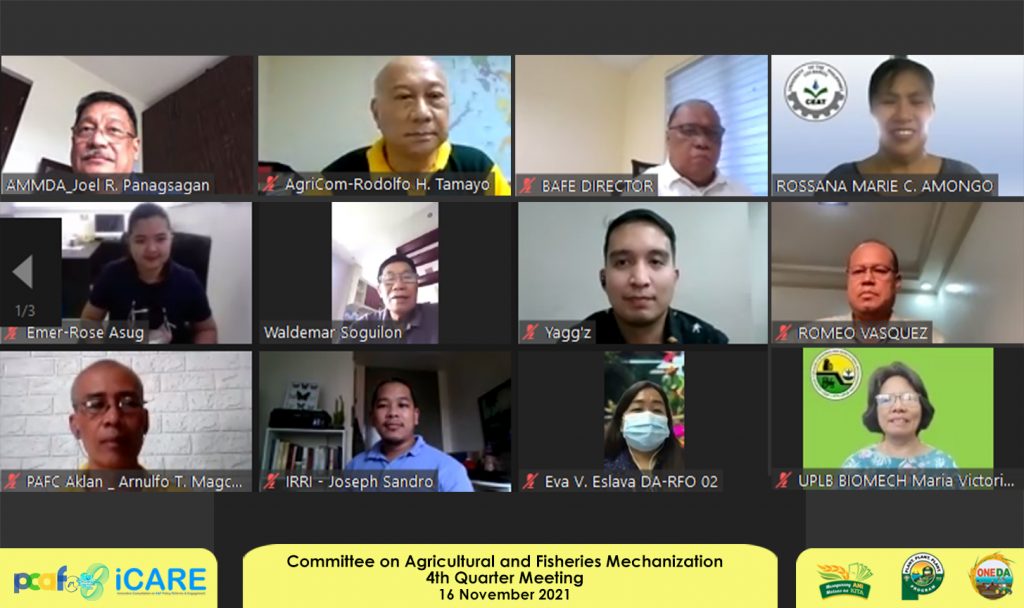
During its fourth quarter meeting on November 16, 2021, the Committee on Agricultural and Fisheries Mechanization (CAFMech) sought the engagement of non-government and civil society organizations, as well as Agricultural and Fishery Councils to speed up the registration of A&F machineries in municipal and city government units.
This effort is in line with the Department of Agriculture and Department of Interior and Local Government Joint Memorandum Circular (DA-DILG JMC) No. 2018-01 that aims to establish ownership and create a national database of A&F machineries for planning and monitoring purposes in accordance with Republic Act 10601, or the AFMech Law, and other existing laws.
This requires individual owners, registered farmer-cooperatives and associations, and government and private entities to register both new and currently used A&F Machineries.
During the meeting, it was recommended to strengthen information dissemination efforts for suppliers, machinery owners, and other stakeholders to encourage registration. Non-compliant dealers, distributors, and A&F machinery beneficiaries were proposed to be informed of the initiative on fuel subsidy, which requires the said registration.
Utilization of fees could also be communicated to let the stakeholders know the benefits they could get from sector improvements and programs that could be funded by the collected fees.
In line with the provision in the same JMC, the Bureau of Agricultural and Fisheries Engineering (BAFE) reported that continuous assistance was being given by the agency to local government units in procuring technology equipment and internet connection as well as additional manpower for automating and speeding up registration.
Meanwhile, DA Regional Field Offices were recommended to ensure after-sales service of A&F machinery suppliers even in remote areas.
Dr. Rossana Marie Amongo of the University of the Philippines Los Baños-College of Engineering and Agro-Industrial Technology also presented the Policy Study on the Implementability of Contiguous Farming in Rice and Corn Areas in the Philippines, which was funded by the Philippine Council for Agriculture and Fisheries.
The study showed that contiguous farming is an effective and efficient means to gain the full benefits of large-scale mechanization. It was also found to be socially, technically and economically feasible in the Philippines. Given this, the body recommended the creation of a national committee that would spearhead the drafting of implementing guidelines including safeguard measures.
Other matters discussed in the meeting are: Implementation of DA’s Farm and Fisheries Clustering and Consolidation (F2C2) Program, Programang Pang-arangkada ng Makinarya para sa Pagsasaka at Pangisdaan (3Ps), Prioritization Criteria for the Development/Revision of PNS for A&F Machinery and Equipment, and Sectoral Issues/Concerns on Mechanization. | JCL











